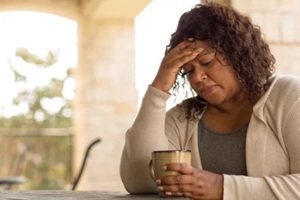 As women enter menopause, their reproductive years come to an end, bringing with them shifts in overall health. One of the most significant is declining estrogen, a hormone essential for protecting bone strength.
As women enter menopause, their reproductive years come to an end, bringing with them shifts in overall health. One of the most significant is declining estrogen, a hormone essential for protecting bone strength.
When estrogen levels drop, bone strength can decline at a faster rate, raising the likelihood of fractures and osteoporosis. Studies indicate that a woman may lose as much as 20% of her bone mass within 5 to 7 years of starting menopause.
Find out how menopause impacts bone health and how partnering with reputable menopause doctors can help strengthen your bones, protect your long-term health, and lower your risk of fractures.
Why Bone Health Matters During Menopause
Bones may seem solid and unchanging, but they are living tissue that continually breaks down and rebuilds. This natural process helps support strong bones, but when breakdown happens faster than rebuilding, bone density begins to decline.
The term bone density describes how much mineral material is present in bones. Lower density means bones are weaker and more prone to breaks. Over time, significant bone loss can lead to osteoporosis, a condition that makes fractures far more likely.
Midlife is a pivotal stage for protecting bone health, as the hormonal shifts of menopause accelerate this process. The International Osteoporosis Foundation reports that approximately one out of every three women over the age of 50 experiences a fracture linked to osteoporosis.
The Link Between Estrogen and Bone Strength
Estrogen is an essential hormone for women’s health. One of its roles is helping to preserve bone density. It supports rebuilding bone tissue and keeps the balance between bone loss and formation in check.
As menopause occurs, estrogen drops significantly, upsetting the body’s balance and leading to faster loss of bone strength. As a result, women may have an increased risk of osteoporosis and fractures, even from minor falls or everyday movements.
While bone loss itself is often silent, there are subtle signs, such as a decrease in height, a stooped posture, or unexpected fractures. Because the changes happen gradually, many women may not realize the impact until bone weakness is advanced, making it especially important to be proactive about bone health during and after menopause.
Risk Factors That Can Worsen Bone Loss
 While menopause naturally accelerates bone loss, several factors can increase the risk even further. Age is a primary contributor, as bones weaken over time, and a family history of osteoporosis may heighten vulnerability.
While menopause naturally accelerates bone loss, several factors can increase the risk even further. Age is a primary contributor, as bones weaken over time, and a family history of osteoporosis may heighten vulnerability.
Lifestyle choices such as smoking, excessive alcohol use, and a lack of physical activity can also negatively impact bone strength. In addition, certain medical conditions, such as thyroid disorders, rheumatoid arthritis, gastrointestinal diseases, and long-term use of medications such as corticosteroids, may speed up bone thinning.
Knowing these risk factors is the first step toward prevention. With greater awareness, women can make informed choices, adopt healthier habits, and work with their healthcare providers to protect their bones and reduce long-term complications.
Evidence-Based Ways to Support Bone Health
Protecting bone health during and after menopause requires a multifaceted approach that combines nutrition, exercise, lifestyle habits, and medical care. Good nutrition is essential, as adequate calcium, vitamin D, magnesium, and protein help maintain bone density and support bone rebuilding. Dairy products, leafy greens, fortified plant milks, nuts, and lean proteins are excellent sources.
Exercise is equally essential. Engaging in weight-bearing exercises, such as walking, jogging, dancing, or lifting weights, encourages bone growth and enhances balance, which lowers the chance of fractures. Lifestyle habits also play a significant role. Quitting smoking, limiting alcohol, and maintaining a healthy weight all contribute to stronger bones.
Regular medical care can often catch problems before they worsen. Bone density testing can detect early bone loss, allowing for timely interventions. Medications or hormone therapy may sometimes be recommended to slow bone loss or strengthen bones. According to the Journal of Women’s Health, women who follow a combination of healthy lifestyle habits and medical guidance can reduce their fracture risk by up to 50%.
How to Support Strong Bones Through Menopause
 Menopause is a natural stage of life, but it brings changes that can significantly affect bone health. Attention to warning signs, such as frequent fractures, a family history of osteoporosis, or early menopause, can help you take action before serious problems arise.
Menopause is a natural stage of life, but it brings changes that can significantly affect bone health. Attention to warning signs, such as frequent fractures, a family history of osteoporosis, or early menopause, can help you take action before serious problems arise.
Early evaluation and proactive care are important to prevent long-term bone loss and maintain strength, mobility, and independence. Lifestyle changes, nutrition, exercise, and medical guidance play a role, and each woman’s needs differ.
If you’re experiencing menopause and want to protect your bone health, reach out to Raleigh Gynecology & Wellness today. Our women’s health specialists are ready to provide personalized support, screenings, and strategies to keep your bones strong for years to come.
